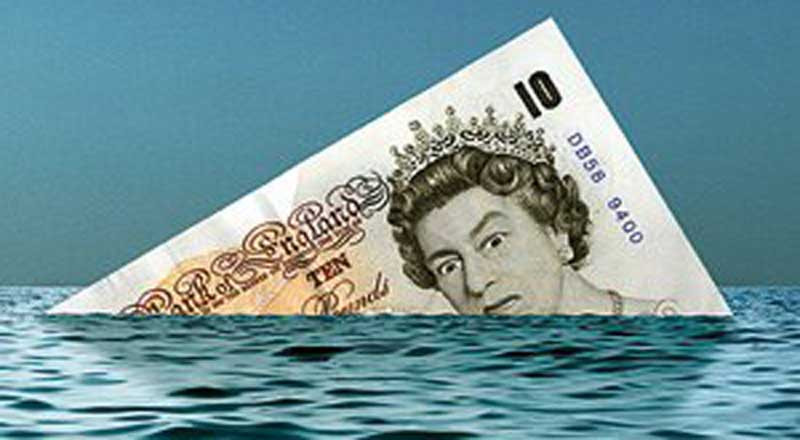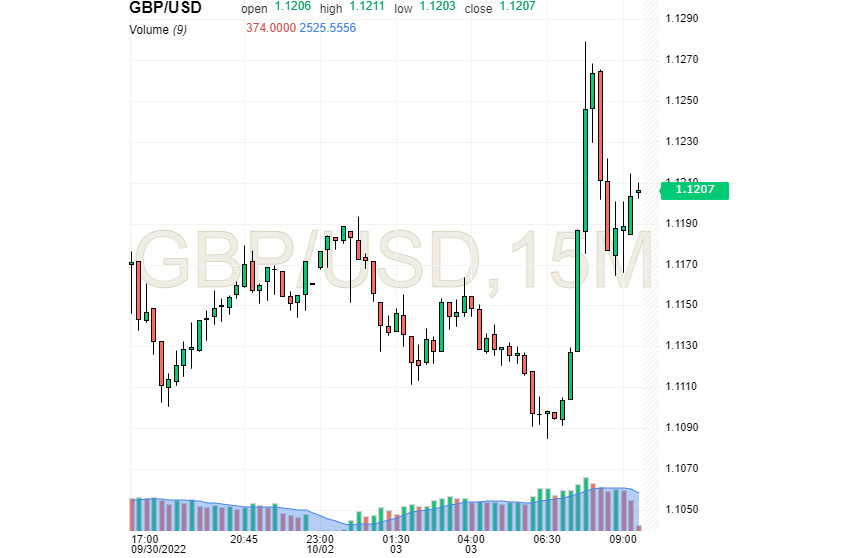
Last week, the British currency was rather volatile. It made several attempts to remain in the upward channel. Some of them were unsuccessful. Nevertheless, many analysts expect the pound sterling to recover in the medium and long term.
Over the past week, there have been lots of unexpected events that significantly affected the bond market. After another rate hike by the Fed, the Bank of England decided to make some drastic changes. On September 28, the regulator unexpectedly intervened to stem the bond market turmoil. The decision to buy back long-term bonds triggered a spike in the US bond market as well.
At the close of trading on September 28, the US 10-year government bond yield totaled 3.7%, falling below the recent high of 4.02%. On September 29, this figure reached 3.747%. So, the pound sterling sank significantly. At the start of last week, it declined against the greenback to 1.0300. The GBP/USD pair broke through the historical low of 1.0540 a bit later. It renewed fears that the pound sterling may decline below the 30-year low.
However, some analysts are quite optimistic about the long-term prospects of the pound sterling. They believe that the current dynamic looks like a temporary retreat that may be followed by a reversal. On October 3, the GBP/USD pair resumed an upward movement, reaching 1.1207.

Hence, the current downward movement may be the continuation of the uptrend that kicked off last Friday. However, analysts warn against euphoria as a test of the 1.1500 level is unlikely now.
What is more, bond markets were taken aback by the decision of the UK authorities to spend £150 billion on subsidizing energy bills to support households and businesses. However, according to economists, it may lead to an increase in public debt. The government pledged to cap energy prices, financed by new state borrowing while cutting taxes.
The Bank of England is ready to further raise rates to curb galloping inflation. However, this problem is less relevant now as foreign and local traders are selling off government bonds.
Before the Bank of England announced its decision, there was another sell-off as the country's pension funds had to stump up the cash to meet collateral demands. However, the pound sterling unexpectedly rose. It appears many market participants opened long positions on the British currency amid market jitters. It helped the pound sterling recover, closing the week with gains.
As a result, the Bank of England decided to buy back bonds from the balance sheet instead of selling them. Such a step could have triggered a sharp drop in the pound sterling but this did not happen. In the coming months, the regulator will continue to raise the key rate and boost short-term bond yield. The regulator is going to buy 20-30-year- government bonds as well. The current monetary policy may increase the appeal of the pound sterling, pushing it higher against the US dollar. Given the near-term prospects of the British bond market, analysts agree that the availability of long-term lending and tax cuts are likely to spur demand.
Even though the pound sterling has extended losses versus the US dollar, it still has the chance to recover. In the long term, it may regain ground. However, the short-term outlook remains bearish.
 English
English 
 Русский
Русский Bahasa Indonesia
Bahasa Indonesia Bahasa Malay
Bahasa Malay ไทย
ไทย Español
Español Deutsch
Deutsch Български
Български Français
Français Tiếng Việt
Tiếng Việt 中文
中文 বাংলা
বাংলা हिन्दी
हिन्दी Čeština
Čeština Українська
Українська Română
Română

